Why does it feel bad to play against discard? The answer may seem and feel obvious. But let me hold priority and toss something out real quick: I have inoculated myself to the feelbadism of discard effects. How? Well, by playing it all the time. And if black is anything in Magic: The Gathering, it’s self-punishing. You know what they say: What’s bad for the gilded goose is bad for the gander.
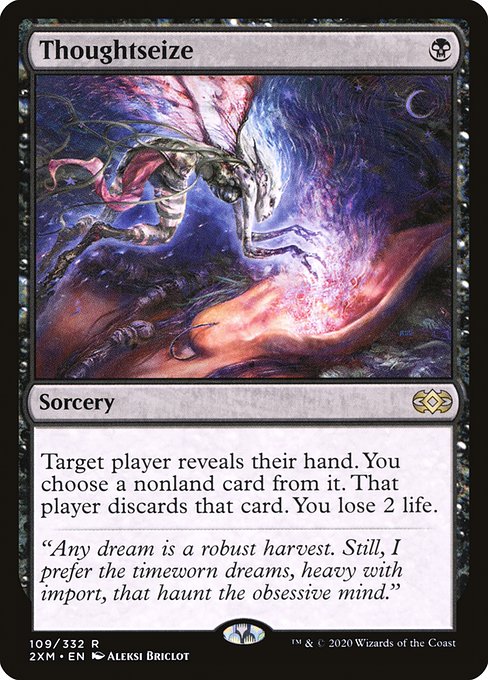
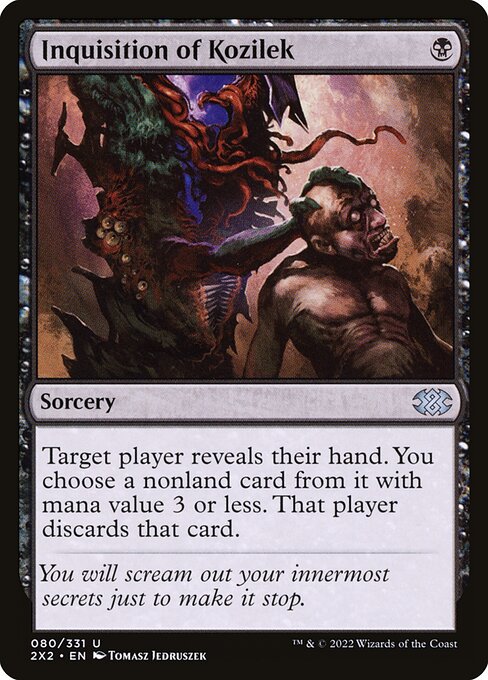
I often sit to play commander and reveal Tourach, Dread Cantor (like, say, a few weeks ago) and immediately hear sighs. Meanwhile, my compatriots reveal Brago, Feather, any new high powered precon (yeah, I said it) commander that tokens up to the rafters or chains +1/+1 counters on all types.
Here’s the paradox, though. I don’t often win. This is an artifact of my not having years of experience and building decks by vibe instead of a play-to-bulldoze construction. Most glaringly, I lack an aggressive need to win games. I suppose I like winning turns. However, that said, I’m still the turd at the table because: discard is bad, m’kay. Back in 1995, Beth Moursund in The Duelist #8 even acknowledged that my type of playstyle isn’t suited for multiplayer formats:
Denial decks…suffer badly in a multiplayer setting. You have to cast your spells so selectively that it’s hard to keep more than one player out of the action. (29)
So again I ask: Why does discard feel bad?
Because it simply does. There’s no deep theory to this. Everyone will probably tell you this. But why does it feel worse than, say, having the house swing out at you with fliers and indestructible? Or watching an opponent take a five minute turn while they hit multiple land triggers? Or when another’s commander gets Voltron’d through each turn?
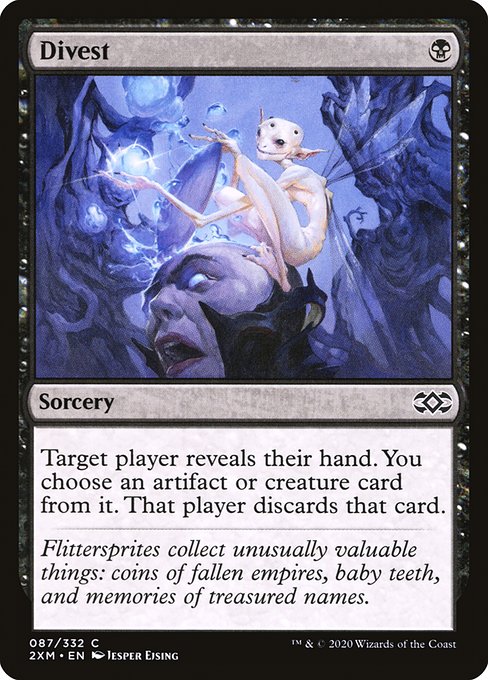
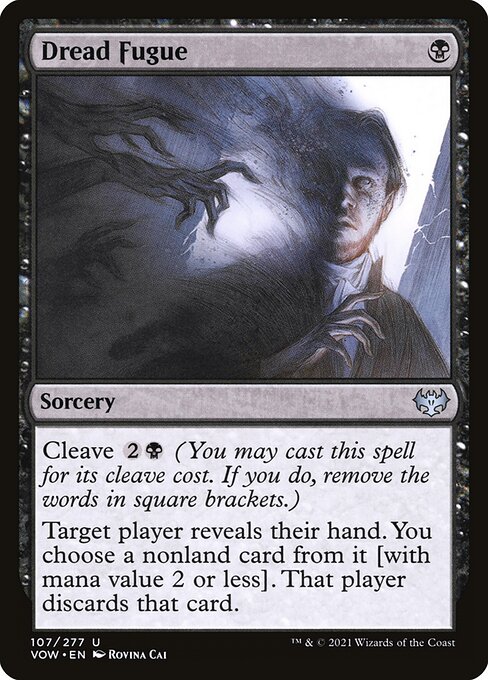
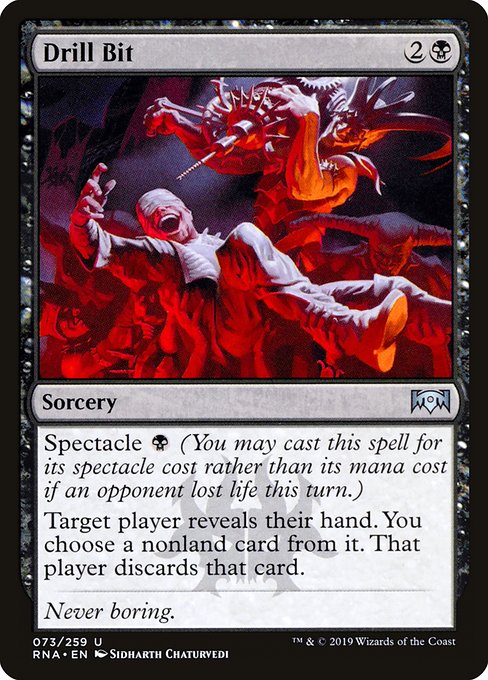
Even in a 100 card singleton format, discard feels bad because of a loss of opportunity. That feels worse than losing while standing on your own two feet.
It is also likely because lots of discard is targeted, and that kind of action can be taken personally in casual games. But do notice that I use the term feelbadism. The “-ism” suffix does a lot of heavy lifting here. Feelbadism, to my mind, is the sense or the anticipated and previously logged experience with something (like discard) that rebounds across us. So discard ends up being more like a mood. It’s not the actual interaction with the effect. Discard is also immediate and visceral. You’re forced to choose a card (maybe many cards). You take the card and move it to a different zone. Or you lay your hand out for all to see. Then an opponent chooses one. The game stops and the dark ritual begins. The player casting a discard spell is like an in-game Tourach; the opponent is the victim. The cards are the sacrifices. On the other hand, abilities like first strike, indestructible, or ward are less in your face. They are elements that one has to remember before attacking or planning. Especially in paper, playing with cards is (I imagine) half the fun. Riffling them, holding them, drawing them. Doing that cool nerdy shuffle thing with them that I can never master. A friend even told me recently that milling seems more acceptable than discard because you don’t even hold them. They hit the graveyard immediately. Too bad, so sad.
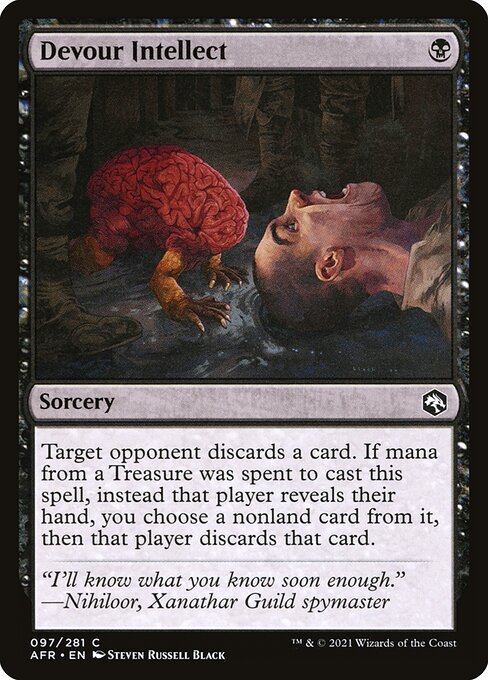
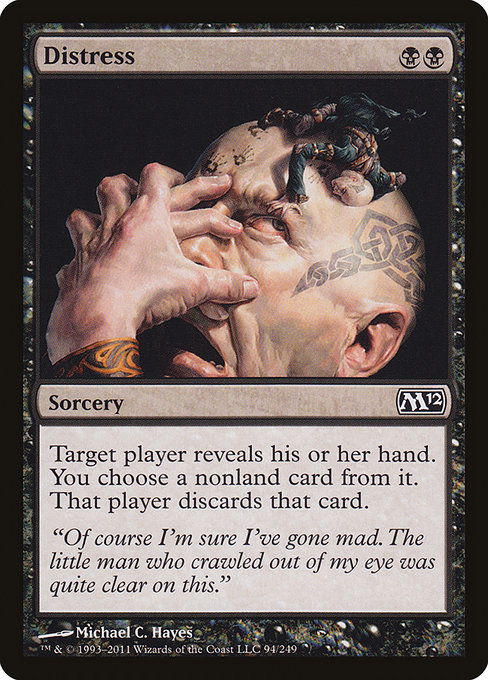
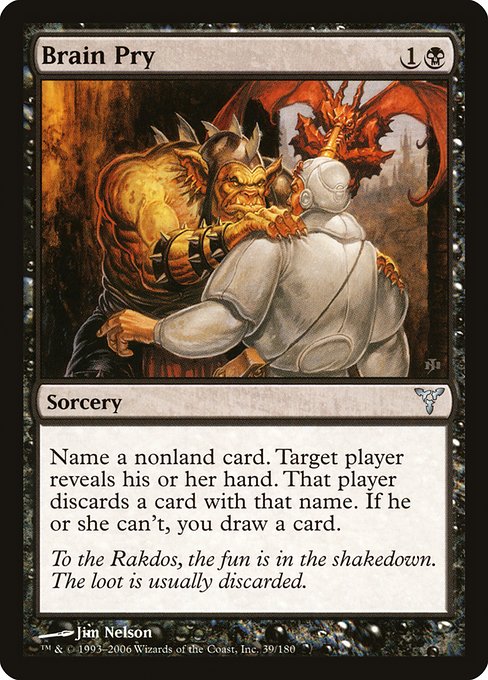
This is where I figuratively and literally reveal my hand and say that disacrd is about as close to living real life as you can get in a game. What do I mean by that? Discard reminds us of so much that sucks absolute ass in our lives outside the game. Things that take away joy rather than lift us up or support us. Taxes. Death. Disease. Missed promotions. Surprise car breakdowns. Losing our keys, watches, glasses, wallets, phones. But I’ll go a step further and claim it’s even more existential than that. Because taxes can be paid. Death requires life. And disease, a pre-disease state.
Discard is the pre-nope effect. It’s an effect so blue, it’s frigging black.
Playing Magic is meant to be a break from the everyday. And maybe we undervalue the “feels” of the game. There are over 100 cards in black that dispense discard effects. At least ten have the word “mind” in the name and much of the card art focuses on the brain, the head, memory, and so on. Having a grip is then equal to having a brainstate. And discard is therefore like doing destructive brain surgery. Or so the Magic artists and development team would have us believe.
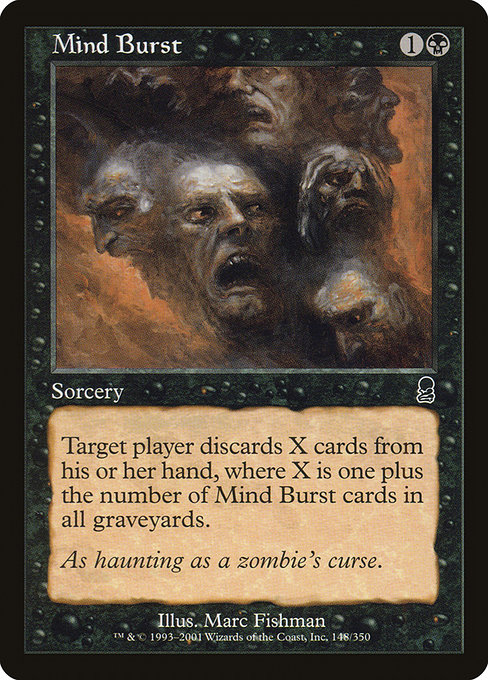
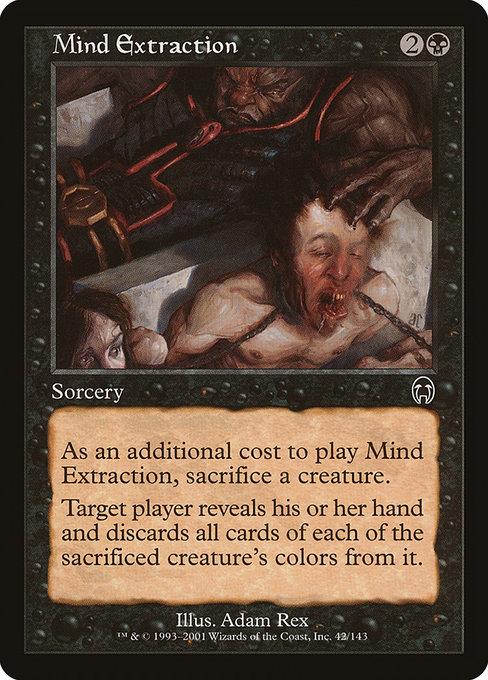
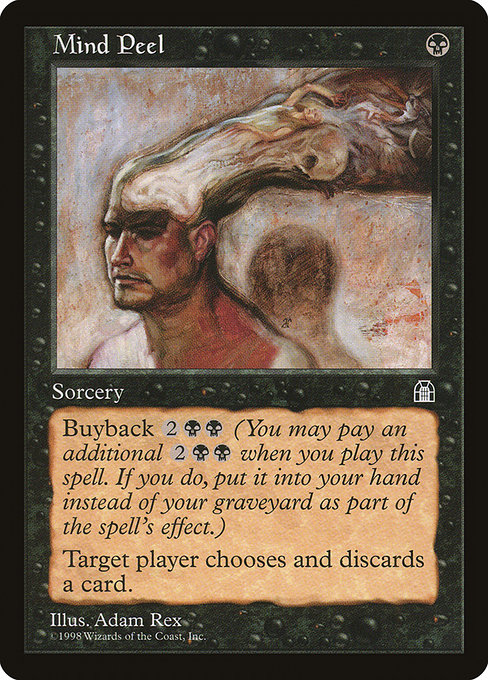
The library is the future. The grip is the present. The graveyard is the past. When one engages in discard, one tells the opponent that all they have is the future, which is uncertain, because their present has been torn from them and thrown into the past. That may be too metaphysical for a card game, but I like to think that on some level, playing on a person’s feels can also be a strategy. Discard is a mechanic meant to make you think that you have no way back. To make others go blank and addle them.
Kyle Winkler (he/him) is a teacher and fiction writer. While he was pre-teen when Magic: The Gathering was released, he didn’t start playing until recently. He’s the author of the cosmic horror novella (The Nothing That Is), a collection of short stories (OH PAIN), and a novel (Boris Says the Words). His favorite card is a toss up between Crypt Rats and Oubliette.

